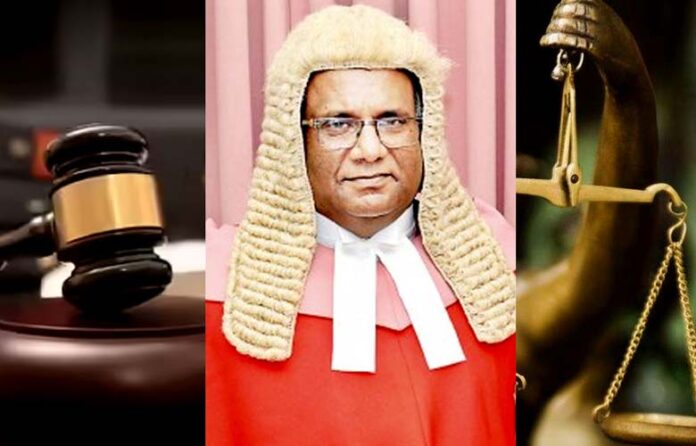July 07, Colombo (LNW): Justice Gamini Amarasekara, who concluded his tenure on the Supreme Court bench last week, marked his final day in court with a reflective and emotionally charged address, casting a critical eye on the state of judicial independence in Sri Lanka.
Speaking with the permission of the Chief Justice and fellow justices, Amarasekara used his farewell remarks to not only express gratitude for his career journey—from his first appointment in the Magistrate Court of Walasmulla during the turbulent years of 1988–89—but also to issue a sober warning about what he perceives as the growing fragility of judicial autonomy.
Recalling decades of service, Amarasekara noted that although the judiciary had historically withstood external pressures with the solidarity of both the bench and bar, internal erosion posed a much more insidious threat.
“It is easier to confront external intimidation when judges and lawyers stand together,” he said. “But when the rot begins from within, it becomes much harder to resist.”
He spoke of the values instilled in him early in his career by senior jurists such as the late Justice Sosa, recounting a parable about a caliph’s removal to illustrate the dangers of loyalty to power over principle.
“How do we stop the emergence of judges who trade their independence for favour in a competitive society?” he asked, with evident concern. “This is not merely a rhetorical question—it is a lived reality I have encountered.”
Amarasekara lamented a gradual disillusionment he experienced in recent years, especially during his involvement with the Judicial Service Commission. Though he refrained from naming individuals or incidents, he alluded to a culture of silence and compliance within the judiciary, warning that it is ultimately the public who would suffer the consequences.
Lawyers, he said, may hesitate to raise concerns when the questionable conduct emanates from judges they must appear before. Judges themselves may resist speaking out, fearing reputational damage. “In the end, justice becomes the casualty,” he declared.
The retiring judge’s tone shifted briefly to one of gratitude as he acknowledged the support he had received from the legal fraternity throughout his career. He gave special thanks for the community spirit within local bar associations, which had helped him navigate numerous professional challenges over the years. “I thank the almighty for allowing me to remain human in my dealings with others,” he reflected.
Yet his parting words left no doubt that he departed his post with a heavy heart. “I took pride in being a judge,” he said. “But recent experiences have left that pride wounded.”
Justice Amarasekara’s farewell serves as a powerful reminder of the vital role played by an independent judiciary in upholding the rule of law. His candid remarks underscore the responsibility borne not only by judges but by all stakeholders in the legal system to resist compromise and preserve the integrity of the bench.

